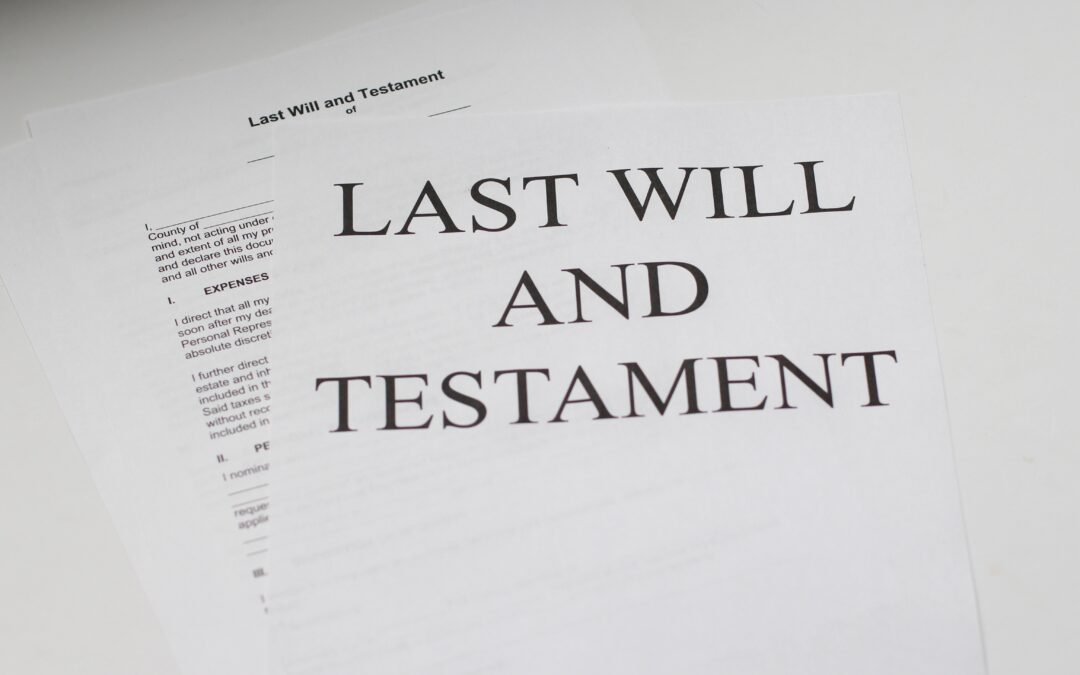Yes. A will goes through probate. A will does not avoid probate. Short answer. Now let’s dig further into what happens if you die with a will.
Starting with the premise that a person who is dead cannot own anything. So one moment you own something, say a home, and that ownership is personally tied to you and your social security number. Now imagine that when this person dies, this informal thing called an “estate” appears in front of them. This informal estate of “insert name of person who died” now is the owner, temporarily, of the home. The informal “estate” cannot use your social security number because it isn’t you. It is your “estate.” This is an important distinction because the law sees you and this “estate” as two different things.
Two things need to happen to this “estate”. First, the “estate” needs to be legally recognized and get its own identification number, a.k.a. its own taxpayer identification number (TIN). Second, the estate needs to be administered. The administration of an estate is the process of paying creditors of the person who died who are now the creditors of that person’s estate. It is also the process of taking property that is now owned by the estate and distributing it to the rightful owners. Important note: the estate cannot hold onto the property forever.
If you die with a Will, also known as a Last Will & Testament, the process of legally recognizing an estate and “administering” the estate is called the probate process. Probate is a court process. Here in Fulton County (as well as Cobb County, Gwinnett County, DeKalb County, Cherokee County, Forsyth County) there is a special court system, with its own judges and staff, that handle all probates. Generally, the county in which you reside at death determines where your estate will be probated at your death.
The probate process starts by someone presenting your Will to the court by a petition and asking the court to legally recognize that document as your will. Once the court accepts the will as your last will and testament, the court will look at the document to determine if you, the dead person, have named someone to be your Executor. The Executor is the person who is in charge of making sure your estate is correctly administered during probate. The court will then give this person, if they decide to do so after review, letters giving that person authority to represent the estate. Remember the estate now temporarily owns everything the dead person did at their death. The Executor then needs to do three things: gather up all the things owned by the dead person (marshaling assets), satisfy creditors rights and distribute whatever is left to the rightful people.
The Executor, in this final step, is supposed to follow what the Will tells them to do with the property. So if we go back to the original example of the dead person owning a home at their death and we say this home was worth $500,000.00 when the person died and there was NOT a mortgage, let’s see what happens when the Will is probated.
The proposed Executor is supposed to present the Will of the person who died to the probate court in the county where this person lived at their death. The court will likely appoint this person as the Executor if there isn’t anyone saying otherwise. The Executor then gets a TIN for the estate and can then deal with the debts of the person who died. Let’s say there was $3,000.00 in medical bills and $7,000.00 in credit card bills. The house is then put on the market to sell. Important note: only the Executor, after they are appointed by the court, can sell the home. They are the legal representative of the estate that owns the home. The home is sold and after realtor fees, there is a check of $460,000.00 put in a bank account opened by the Executor with the new TIN. So the creditors are satisfied, all the property is now money and it is time for the Executor to look at the will to see what happens next. So we had $10,000.00 in debt owed by the estate, we had a profit of $460,000.00 on the sale of the home. That leaves $450,000.00 to distribute (or give). The will says to divide this between the two children of the person who died. So the Executor now writes checks to each child for $225,000.00 each. Then the Executor asks for the court to close the estate and the estate no longer exists.
This is a very generalized way of describing the process of probate. But the point to be made is that your Will goes through this process. Without your Will, the Executor will not know what you wanted to have happen to the $225,000.00 or any amount left over in your estate. The State of Georgia has laws that will say what happens to that money if you don’t have a Will. But do you want the State to decide what happens or do you want to decide what happens.
So if you have any property at all, whether it is a bank account, a home, important pieces of personal property, make sure you have a will. The will does go through probate, but it will do so ensuring that the person you want in charge (Executor) makes sure that the person you want to get the property does, in fact, get the property.

